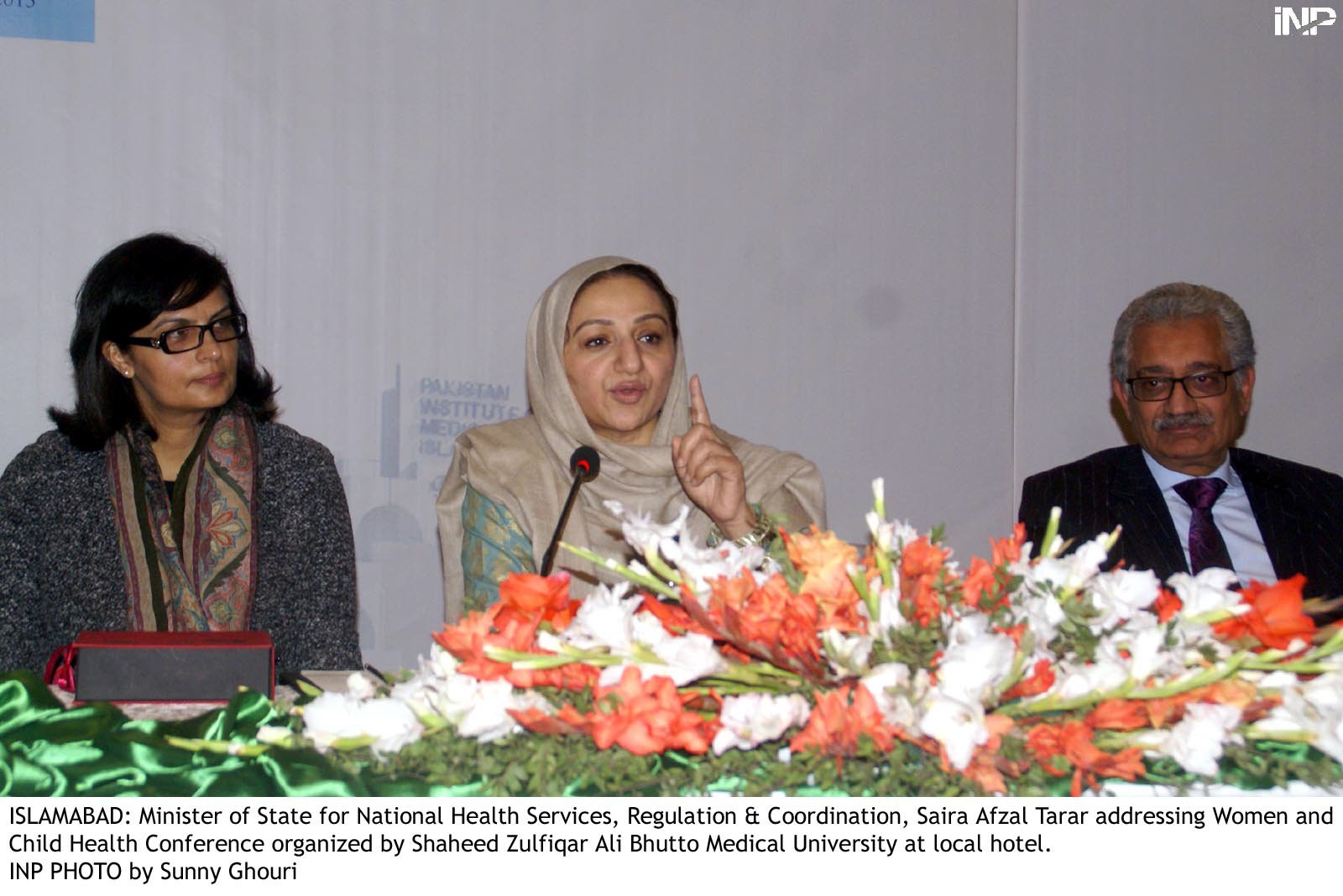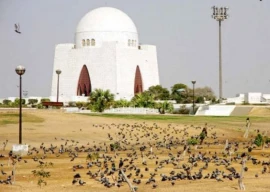
Organised by Shaheed Zulfiqar Ali Bhutto (SZAB) Medical University–Pims, the conference was inaugurated by President Mamnoon Hussain on Friday.
Though publicised as an international conference, not a single foreign health expert participated in it. Even among the local experts, a majority were from Pims itself.
On the second day, attendance was embarrassingly low. A number of people lost interest in the conference after day-one, where they saw the lack of international presence. The lack of interest was also due to poor organisation of the event. Speakers were left to address empty chairs in the conference hall.
Even hospital staff did not attend in large numbers due to lack of coordination.
There was also no one to coordinate with the media as the administration did not invite journalists. The invitations for coverage were sent by the NHSRC Ministry.
Talking to The Express Tribune, a senior staff member of the Maternal Newborn and Child Health (MNCH) department, who wished not to be named, said he did not attend the concluding session either.
“It was embarrassingly organised. The speakers had nothing new to share with the participants,” he said.
“There wasn’t a single foreign expert present, even on the first day of the conference,” the staff member said.
Another senior Pims official, speaking on condition of anonymity, said that the conference was scheduled to be held on September 13 and 14 last year and many international health experts were sent invites, which were accepted.
Due to the PAT and PTI sit-ins in the capital, however, the conference was postponed and foreign guests were sent letters of apology, the senior official said. He said that they were not re-invited.
The official said that through the conference, the Pims administration had earned a large amount of revenue through pharmaceutical company sponsorships.
Sharing details, he said that a number of pharmaceutical companies had set up promotional stalls at the conference and the highest rent paid for a stall was Rs10 million.
“One could say that it was a way of making money,” the official said.
On the other hand, Shaheed Zulfikar Ali Bhutto Medical University (SZABU) Vice-Chancellor (VC) Prof Javed Akram termed the conference “a success”.
He claimed that it was attended by 28 international health experts including representatives of the World Health Organisation (WHO), The United Nations Children’s Fund (Unicef) and the US Agency for International Development (USAID), among others.
The VC mentioned that the health experts at the conference shared a roadmap with Minister of State for NHSRC Saira Afzal Tarar to address maternal and child health issues.
“Prime attention was given to improving primary healthcare facilities in the country so that more births are entertained there rather than at tertiary care hospitals,” he said.
Speaking at the conference, Tarar urged all stakeholders to work together for improving the situation of mother and child health in the country.
“The government is committed to minimising child and maternal mortality rates,” she said.
“I support and endorse all points raised by experts and appreciate the recommendations made,” Tarar said.
She said that the federal government had ensured uninterrupted supply of vaccines for six million children against nine vaccine-preventable diseases. Tarar said that vaccine was also being provided for over six million pregnant mothers to protect them against tetanus.
“It is important that the vaccines reach all target children and mothers,” she said.
Tarar said that intravenous polio vaccination had already been introduced in high-risk areas. This form of vaccine presently being used as part of the polio emergency will soon be included in the routine immunisation programme, she said.
Tara said that the provinces would have to strengthen their EPI, adding reactivating non-functional EPI centres should be the first step in this regard. She said that equipping vaccinators with necessary resources to improve outreach to communities was also equally important.
Published in The Express Tribune, February 8th, 2015.
1731570357-0/elon-musk-(1)1731570357-0-405x300.webp)
-(1)1717678110-0/Kendrick-(1)-(1)1717678110-0-165x106.webp)



1732428532-0/BeFunk_§_]__-(43)1732428532-0.jpg)




1725254039-0/Untitled-design-(24)1725254039-0-270x192.webp)






COMMENTS
Comments are moderated and generally will be posted if they are on-topic and not abusive.
For more information, please see our Comments FAQ